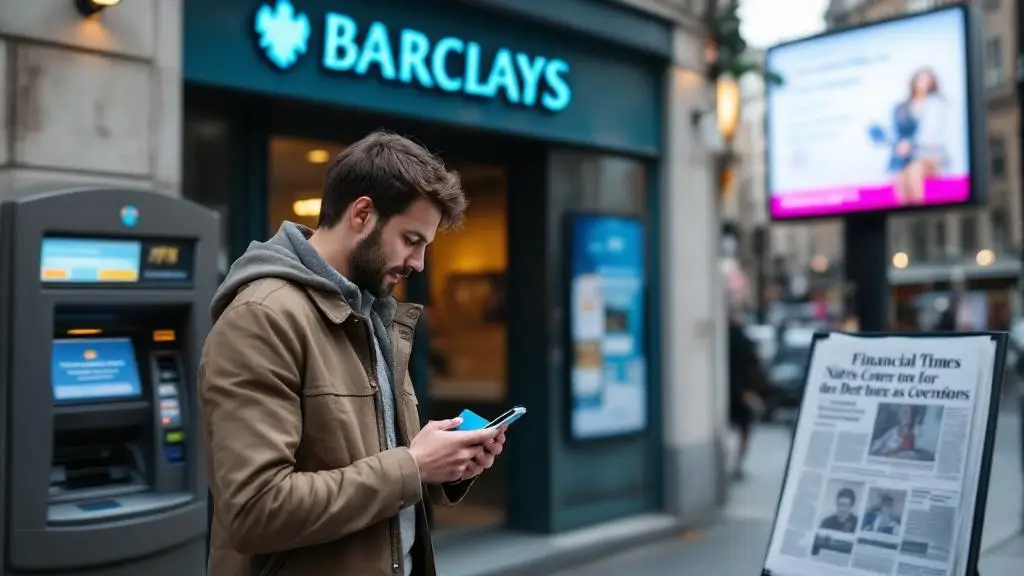In a significant move reflecting deepening concerns over cryptocurrency’s risks, Barclays has announced it will block all crypto transactions made through its Barclaycard credit cards starting this Friday. The decision comes as UK regulators and industry groups grapple with the question of whether consumers should be allowed to buy volatile digital assets with borrowed funds.
For years, Barclaycard users could freely purchase cryptocurrencies on exchanges using their credit cards. In 2023 alone, the bank reported more than five million active credit card accounts across the UK. But the era of easy crypto buying on credit is ending at Barclays, as the bank cites the dangers of volatile token prices and the possibility of consumers falling into debt without adequate protections.
Lack of Investor Safeguards Sparks Concerns
Barclays representatives have pointed to a fundamental problem: when something goes wrong with a crypto purchase, there is no safety net for consumers. Unlike traditional financial products, crypto assets are not covered by the Financial Ombudsman Service or the Financial Services Compensation Scheme.
This means if the value of a purchased cryptocurrency plunges or if a crypto exchange collapses, buyers cannot seek recourse through the usual financial protection channels. “The absence of these safeguards exposes credit card users to potential losses that could easily spiral into unmanageable debt,” a Barclays spokesperson emphasised, underscoring the rationale behind the bank’s decision.
Regulators and Industry Divided on the Issue
The announcement arrives at a time when debate is heating up over how to handle crypto credit purchases in the UK. On May 2, 2025, the Financial Conduct Authority (FCA) published a paper calling for public opinions on whether restrictions should be imposed on buying crypto with credit cards. The FCA cited risks from crypto’s notorious price swings and the lack of regulation to protect investors.
In stark contrast, the Payments Association, an influential industry group, has dismissed the FCA’s idea, arguing that banning crypto purchases with credit cards could unfairly lump digital assets into the same risk category as gambling. “Instead of blanket restrictions, users should be educated and supported to make informed decisions within predefined credit limits,” the association stated, calling for a balanced approach that respects consumer choice without sacrificing safety.
Are Current Controls Enough?
The Payments Association has highlighted that controls are already in place for using credit cards on high-risk purchases, including crypto. Some banks have even proactively blocked customers from using cash deposits to buy digital assets, leaving credit cards as a common alternative. Proponents of continued access argue that these existing measures provide a reasonable level of oversight without needing blanket bans.
Yet, critics argue that the very nature of crypto highly volatile, often unregulated, and subject to scams makes it ill-suited for purchases made with borrowed money. The risk, they say, is that consumers could rack up debt chasing sudden price spikes, only to face devastating losses when prices collapse.
Hidden Costs of Buying Crypto on Credit
Beyond volatility, there’s another catch that many consumers might overlook: hidden costs. According to Bankrate, some credit card issuers treat crypto transactions as cash advances. This means they can slap buyers with higher fees and interest rates compared to standard purchases, adding another layer of financial risk for those funding their crypto investments with credit.
A Sign of Things to Come?
Barclays’ decision could be an early indicator of a wider trend as traditional financial institutions reassess their exposure to crypto risks amid regulatory uncertainty. While the FCA’s consultation period will gauge whether formal restrictions should follow, Barclays’ proactive step sends a strong message about the responsibilities banks feel towards protecting consumers from potentially ruinous debt.
As the crypto market continues to mature, the conversation over how and whether to allow purchases on credit will likely intensify. For now, Barclays customers looking to buy Bitcoin or other digital currencies will need to fund their transactions from debit cards or bank accounts instead of relying on borrowed money.
The bank’s decision signals a new chapter in the UK’s evolving relationship with cryptocurrencies, one where caution may increasingly trump convenience.























